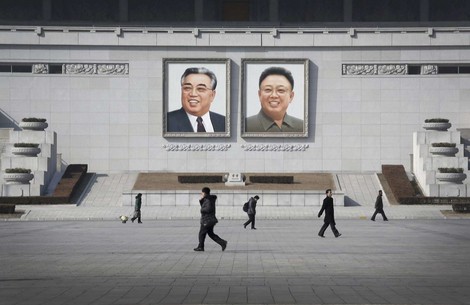Your podcast discovery platform
Curious minds select the most fascinating podcasts from around the world. Discover hand-piqd audio recommendations on your favorite topics.

piqer for: Globalization and politics Global finds
I am an Australian freelance journalist focussing on conflicts, politics, and warzones around the world. I have been working as a journalist for over 5 years, having reported from Australia, Germany, China, Egypt, Palestine, and Ukraine. I am especially interested in the way that new technologies are being used in conflict zones in unexpected and often disturbing ways. During my time working as a journalist, I also co-founded open-source war reporting site Conflict News.
Why The Rise Of Authoritarianism Is A Global Catastrophe
Since the fall of the Soviet Union, many within the educated classes thought that democracy and human rights were preeminent. Humanity was entering a golden age of ever-increasing political participation which would lead to greater levels of personal freedom. In 2017, these predictions look remarkably naive.
Indeed, between 2000 and 2015 democracy fell apart in at least 27 countries - places like Thailand, Turkey and Russia. As well China – the foremost non-democratic power in the world rose to prominence, bringing prosperity for many of its citizens without the trappings of 'freedom'. While some other regions (most notably West Africa) saw increases in democracy, the overall trend was negative.
And now the authoritarian tide has reached the West, the great former bastion of democracy. Leaders with a disdain for democratic institutions have now risen to power in Hungary, Poland, and most notably, the US with President Trump. People are asking the question: is democracy the only way forward? Does authoritarianism offer elegant solutions to the problems of the modern world?
This article by Garry Kasparov and Thor Halvorssen shows this is not the case. Building on their own personal experiences of oppression from authoritarian states, they show that these regimes are indeed bad for humanity. From productivity to happiness and economic stability, they show that there is little to back up ideas that autocracies can do it better. Moreover, they condemn the democratic governments and institutions who continue to do business with and support these regimes for seemingly cynical gains.
Coming before a series of make-or-break elections in the EU, this article is a strong argument against the lure of populist authoritarian views. As well, it attempts to end the moral equivalencies being drawn between democratic and non-democratic governments.

Source: Garry Kasparov and Thor Halvorssen Image: Wong Maye-E/Assoc... washingtonpost.com
The article cited does not mention President Trump. Yet your curator writes "Leaders with a disdain for democratic institutions have now risen to power in Hungary, Poland, and most notably the United States with President Trump."
Trump is a product of democracy, having been elected despite the undemocratic attempts of his own party to stop his nomination. At this early stage he can surely only have distain for the people obstructing him?
This would seem to be the media, and people in the prosperous coastal areas who didn't vote for him. It seems to me that they distain democracy - and that it's too early to say if Trump will follow suite.
I'm no Trump supporter, but I'm expecting more care from your curators in their introductions to these articles.
This article was actually about a new global paradigm. It could have benefitted from discussing the countries where democracy isn't possible. The failure to understand this reality (and to preach democracy like 19th century missionaries), is the root cause (along with inequality) of what we're seeing in Syria, Libya, Egypt, Iraq etc.